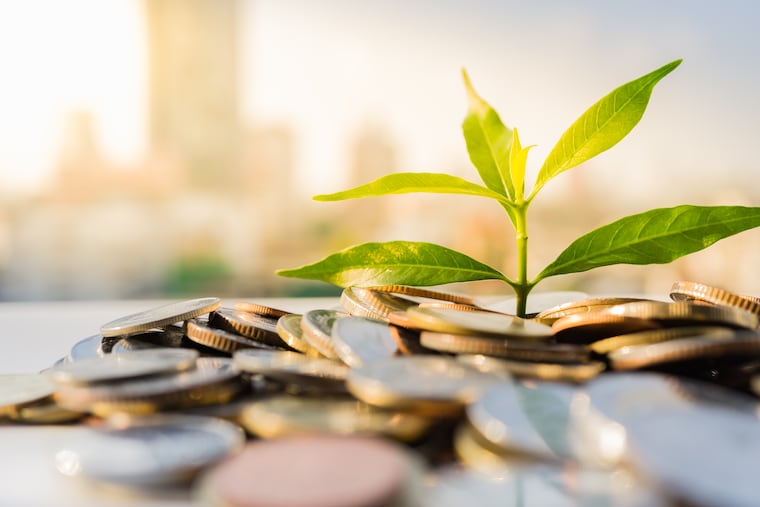Vanguard is trying, again, to get socially responsible investing right. This time with an active fund.
Mom-and-Pop investors demand and want socially responsible funds — focused on environmental, social and governance (ESG) issues — but can’t tell from the label whether the mutual funds or exchange-traded funds reflect their values.

Joan Martini, a retired Philadelphia social worker, wasn’t too happy when she learned that the Vanguard fund in which she had invested was holding 3 percent oil and gas stocks.
“I invested some money from selling my house in what I thought was a socially responsible fund," Martini recalled. “When I finally read the prospectuses and saw companies like Cabot Oil & Gas and Nestle — still the biggest violator of the International Compact on Infant Formulas — included in the Vanguard funds, I felt pretty concerned and duped,” she added.
Cabot “is doing fracking in Pennsylvania, and they’re doing destructive things. It’s personally revolting,” she said. Martini owned Vanguard FTSE Social Index Fund, and found in the prospectus that Vanguard uses FTSE4Good US Select Index.
The Index excludes companies with certain business activities such as weapons, tobacco, gambling, alcohol, nuclear power, and adult entertainment. To be included, companies must meet certain high standards, including environmental management, labor rights, human rights, health and safety, and diversity.
“It’s apparently reduced to some numerical system," she added, "which makes no sense to me and I don’t think it measures much if companies like Nestle and Cabot have made it through the filters. Who comes up with these and what do they really measure?” Nestle is taking water from reservoirs on federal lands, she said, and “water is restricted and they keep taking it when they shouldn’t,” Martini said. She still owns the Vanguard’s FTSE Social Index fund, but is waiting for a better option.
Mom-and-pop investors such as Chestnut Hill resident Joan Martini demand and want ESG funds — focused on environmental, social and governance issues — but can’t tell from the label whether the mutual funds or exchange-traded funds reflect their values.
A new fund from Malvern-based investment giant Vanguard is seeking to solve that problem.
The crux of the confusion? “No one really knows what ESG means or what it stands for,” said Tim Doyle, general counsel for the American Council for Capital Formation, and the author of a groundbreaking 2018 paper that pointed out flaws in ESG indexes and ratings.
His report, “Ratings That Don’t Rate: The Subjective World of ESG Ratings Agencies" highlighted how Tesla, for example, may score high for environmentally friendly cars, but whose erratic CEO, Elon Musk, scores low for corporate governance.
Wall Street has served up continued new socially conscious investment options such as BlackRock’s latest ETFs launched this week. BlackRock now has 28 sustainable ETFs listed in Europe, and predicts investments in sustainable ETFs in Europe to grow to $250 billion by 2028, up from $12 billion today, according to Barron’s.
And on Thursday, Vanguard said it plans this year to launch Vanguard Global ESG Select Stock Fund, a new actively managed equity fund run by Wellington Management.
“Vanguard’s new Global ESG Select Stock Fund is taking a distinctive approach to ESG investing, seeking long-term out-performance through the selection of companies that integrate leading ESG practices into their corporate strategies,” Matthew Brancato, head of Vanguard’s portfolio review group, said in a statement.
Vanguard’s existing index-based ESG offerings adhere to exclusionary screens. This new fund will be different: The Global ESG Select Stock Fund will employ an active portfolio strategy, so the managers won’t be stuck adhering to a passive index. Global ESG Select Stock complements existing Vanguard ESG International Stock (VSGX) and ESG U.S. Stock (ESGV) ETFs, as well as Vanguard FTSE Social Index (VFTSX).
With the new Global ESG Select Stock, Wellington Management will aim to outperform the FTSE All-World Index, holding about 40 companies with “exemplary long-standing ESG practices," the release said. Also new: Vanguard won’t be overseeing governance for the fund, so Wellington would handle potentially controversial proxy voting and company engagements.
Even the U.S. Chamber of Commerce is now jumping into developing industry specific standards for ESG to make information more comparable and accessible for investors.
Governance issues are a hot topic among investors in drug companies, particularly opioid makers. A bitter battle over governance was laid bare at an AmerisourceBergen annual meeting last month, after a proxy forced AmerisourceBergen to produce a report on its “role in the supply chain” and the board’s oversight of “business risks related to the distribution of opioid medications.”
The Sisters of St. Francis of Philadelphia proposed the report at last year’s shareholder meeting, where it captured more than 40 percent of the vote. Vanguard and Charles Schwab funds voted for the proposal — and against management’s recommendation.
Professional investors such as Liz Laprade at Adviser Investments in Newton, Mass., say they welcome new vehicles like Vanguard’s actively managed ESG Fund. The fund will come in Investor and Admiral share classes charging 0.55 percent and 0.45 percent respectively. Minimums investment will be $3,000 and $50,000.
“Currently, we use all passive funds based on indexes,” she said, including ESGV, FITLX, DSI, NUMG, FBT, FNIDX, SUSC, and SUSB. In addition, POSKX, a Primecap fund, scores very high on ESG metrics, although it wasn’t set up as a socially responsible fund.
A client wanted to get rid of Pepsi in their portfolio, which was held in Vanguard Dividend Growth, Laprade recalled.
“We replaced that fund with ESGV,” Laprade said. “But it’s such a gray area. Oftentimes, when you look under the hood [of ESG funds], what you find will surprise you. It’s a good thing there’s an active fund manager now who can make decisions as social trends evolve."
Another option?
Make your money the old-fashioned way — in non-ESG funds, and then “take your profits and put it toward a cause you feel strongly about," Laprade said, "before sacrificing a fund in your portfolio.”